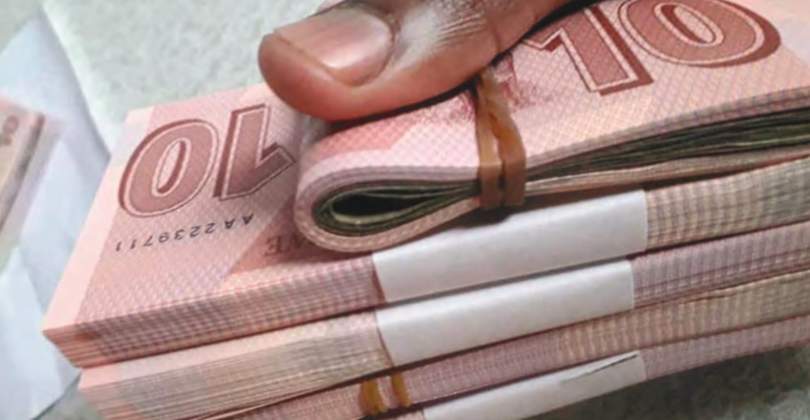Solid Zimdollar gains 1,2pc
The Zimbabwe dollar gained 1,2 percent on the US dollar in yesterday’s auctions to reach $81,7076 as allotments went over US$20 million for the first time to reach a record total of US$21,17 million.
The local currency has now gained a total of two percent on the US dollar since reaching its lowest point of $83,3994 in the last August auction with small gains in each of the last three auctions.
Bids have remained within the same tight bracket, but more importers have been placing bids in the lower part of the acceptable range.
The ready access that producers and essential importers have to foreign currency at a stable rate through the auction system has seen major falls in monthly price rises, ZimStat confirmed yesterday with the latest inflation figures.
The top and bottom successful bids in the main auction remained at $88 and $75 for the second week running, so the slight drop in the exchange rate was due to some importers putting in slightly lower bids, but remaining within a range that the Reserve Bank has signalled is generally acceptable although for the second week running it said that there was some pro-rata allocation to maintain import priority categories.
Allotments on the main auction totalled just over US$20,02 million, breaking the previous record set last week of US$18,33 million. On the SMEs auction allotments went over US$1 million for the first time to reach just under US$1,15 million.
On the main auction, only 10 bids were disqualified, with 164 being successful. As usual bids were disqualified because importers wanted to pay for something not on the import priority list or had not completed their paperwork for previous exports and imports.
On the SMEs auction there were 12 disqualified bids, but 84 successful bids.
The effectiveness of the foreign currency auction system was buttressed by latest inflation figures released by ZimStat yesterday.
While annual inflation figures are falling these are still taking into account the wild jumps in prices in the first six months of the year and the rising inflation in the last few months of last year. But since the auctions were introduced at the end of June there has been a high level of price stability seen in the month-on-month figures.
Economist and advisor to the RBZ, Mr Eddie Cross said there is a stronger correlation between the auction system and the monthly inflation rate.
“What is significant is the month-on-month figure. It’s almost solely due to the auction and recent stability,” he said.
Month-on-month inflation saw a sharp slowdown in August. The rate in August was 8,44 percent, which was 27,09 percentage points lower than 35,53 percent in July.
Forex allocations over the past couple of weeks have been buoyed by the 20 percent foreign currency surrender policy for retailers that the RBZ introduced in last month’s Monetary Policy Statement.
The move has pushed up reserve money numbers, but this should only be a short-term consequence. Reserve money is that part of the money supply that is actually available for spending by depositors.
“Reserve money increased by $1 037 million over the week ending 4 September 2020, largely reflecting an increase of $969 million in banks’ deposits at the Reserve Bank,” said the central bank in a recent update.
“The increase in banks’ liquidity was attributable to the purchase of foreign exchange from the market by RBZ and Government expenditures, all of which raised the deposit levels in the banking system. Foreign exchange purchases by RBZ are mainly for funding the auction.”
Last week, economic analyst Persistence Gwanyanya said the RBZ’s move will boost foreign currency flows on the formal market.
As in all the previous forex auctions to date, raw materials accounted for the bulk of the allotments with US$8,5 million on the main auction and US$216 017 on the SME board.
Machinery and equipment came in second with US$3,1 million on the main and US$218 345 on the SMEs, and consumables, in third place on the main auction US$1,3 million, but topped the SMEs auction at US$291 322.
The continued strengthening of the Zimbabwe dollar comes on the back of growing confidence that the official foreign currency auction trading system is a reliable source of foreign currency for businesses.-herald










